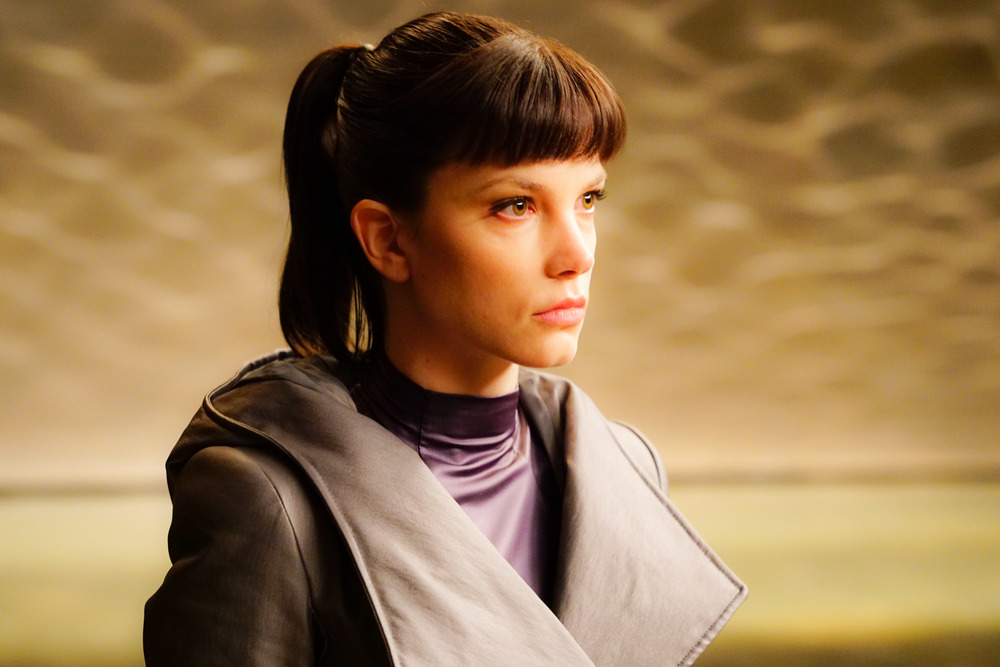It’s not often that blockbusters stay in the cultural conversation this long, but nearing two months since its release, “Blade Runner 2049” continues to be a topic of discussion. The film’s commercial disappointment is puzzling given its critical embrace, and director Denis Villeneuve is still trying to reconcile those two facts. Was the running time to blame? The enigmatic marketing? Or maybe it was the film’s arguably problematic treatment of women?
“Blade Runner 2049” doesn’t hold back in presenting a bleak vision of the future, but women, in particular, aren’t painted in the best light. Some are captive, others are prostitutes and villains, but none are heroic – at least insofar as the film has “heroes.” There is an overall one-dimensionality to the lead female characters, but Villeneuve defends how they’re presented.
“I am very sensitive to how I portray women in movies. This is my ninth feature film and six of them have women in the lead role. The first ‘Blade Runner’ was quite rough on the women; something about the film noir aesthetic. But I tried to bring depth to all the characters. For Joi, the holographic character, you see how she evolves. It’s interesting, I think,” he explained to Vanity Fair.
“What is cinema? Cinema is a mirror on society. ‘Blade Runner’ is not about tomorrow; it’s about today. And I’m sorry, but the world is not kind on women,” Villeneuve continued. “There’s a sense in American cinema: you want to portray an ideal world. You want to portray a utopia. That’s good—dreams for a better world, to advocate for something better, yes. But if you look at my movies, they are exploring today’s shadows. The first ‘Blade Runner’ is the biggest dystopian statement of the last half-century. I did the follow-up to that, so yes, it’s a dystopian vision of today. Which magnifies all the faults. That’s what I’ll say about that.”
It’s an interesting defense but almost seems like an easy out for the film’s storytelling. Thoughts? Hit up the comments section and let us know what you think.






“almost seems like an easy out…”
No, it’s a thoughtful answer to a question that is far less thoughtful. Representation does not equal endorsement and when you insist it does you are demanding dishonesty from artists.
I don’t understand why cultural “critics” still can’t sort this out.
Jagernauth isn’t great on this issue.
He’s great on many other issues though tbh imho.
I don’t think there’s anything wrong with questioning this movie’s depiction of women. The defense of “it’s a mirror to our misogynistic society” sounds good but doesn’t really exist in the text of the film itself. The movie’s narrow view of women seems inherent to the screenwriter’s (not Viilleneuve) lack of imagination. Simple tweaks, like maybe changing K’s character to be a female, or maybe have Joi wear a bra and panties instead of absolutely nothing in her final scene, would’ve likely “fixed” this issue for a lot of people. I know lots of folks are real defensive about this movie and this particular issue, but let’s be honest; the fact that it’s an issue for even a small number of people, still means the issue exists.
For a thoughtful and quite rich suggestion of the depiction of Joi in Blade Runner 2049, I’d really recommend Jill Burke’s recent blog on it and the historical roots of women like her. Burke is a leading Renaissance art historian at the University of Edinburgh, and wrote at https://renresearch.wordpress.com/2017/11/03/blade-runner-2049-and-the-renaissance-nude/.